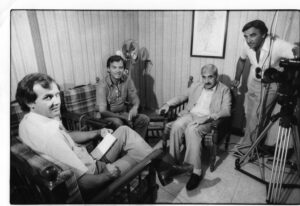Racism is a selective label
The sin of racism is almost invariably conjoined with references to its most pernicious offshoots; colonialism, slavery and exploitation. That’s valid until it becomes selective, at which point it speaks ill of we who like to think of ourselves as “right thinking people”, and of those we elect as leaders.
The Cambridge Dictionary defines racism as: “policies, behaviours, rules, etc. that result in a continued unfair advantage to some people and unfair or harmful treatment of others based on race.”
Based on that, it ought to be relatively easy to list the world’s top ten most racist countries. If, like me, you can’t do it without research, blame it on selectivity.
According to the World Population Review, in 2022 they are, in descending order: Qatar, Serbia, Saudi Arabia, Sri Lanka, United Arab Emirates, Slovakia, Myanmar, Israel, Ukraine and the United States.
It should come as no surprise that three of the guilty are Arab States. They’ve been practicing it for at least 1300 years.
An estimated 9 million Africans crossed the Sahara shackled in shambling caravans or on ships from slave markets in Zanzibar to Oman, Iran, Saudi Arabia and Iraq. The only Africans not targeted by Arab slavers were those who had embraced Islam. How’s that for racism?
Today, the Gulf states, before whom the West bows in the name of oil, rely on imported labourers toiling for minimum wages without recourse to unions, courts or even their travel documents.
In the judgement of Bernard Freamon, adjunct professor at New York University School of Law: “Each is an example, and perhaps the only examples existing in the world today, of what the sociologist Moses Finley (1912–86) called a ‘genuine slave society’.”
A report by Human Rights Watch concluded that in the twelve years it took to prepare stadiums and infrastructure for the football World Cup in Qatar, the Third World workers who did it “faced widespread wage theft, injuries…”. Estimates of how many died in work-related accidents range from hundreds to several thousand.
Yet for the most part, that had no effect on Qatar’s international relations. Censure has been all but drowned out by cheering for the games. The worst that happened to the sheikhs were a few diplomatic equivalents of “yellow cards” in the form of leaders of competing nations not showing up to cheer their side on.
The Chinese philosopher Confucius summed that up two and a half thousand years ago:“To know what is right and not to do it is the worst cowardice.”
GETTING AWAY WITH IT
Despite a vile history, anti-Semitism is an increasingly ubiquitous form of racism. That alone makes Israel’s Number 8 spot on the top ten racism table all the more lamentable.

Having reported for many years on both the Israeli-Palestinian conflict and South Africa, I think labelling Israel’s policies and action in the Occupied West Bank a form of apartheid is valid.
In a study conducted in 2016: “Nearly half of Israeli Jews say Arabs should be expelled or transferred from Israel, including roughly one-in-five Jewish adults who strongly agree with this position.”
Six years later, Israel’s latest coalition government includes the Otzma Yehudit (Jewish Power) party, whose leader Itamar Ben-Gvir has been convicted of racism.
Bezalel Smotrich, the Minister of Finance styles himself a “proud homophobe”, and has said he is in favour of segregating Jewish and Palestinian women in Israel maternity wards.
Diana Buttu, a lawyer and former adviser to the Palestine Liberation Organization negotiating team wrote in the New York Times: “The atmosphere of racism is so acute that I hesitate to speak or read Arabic on public transportation.”
No U.S. leader has ever hinted at, never mind issued a statement with regards to Israel has acknowledging that might be true.
As for the glorification of Abraham Lincoln’s “self-evident” truth “that all men are created equal; that they are endowed by their Creator with certain unalienable rights…”, a study on the effectiveness of “diversity training” in the U.S. referred to “a pandemic of discrimination and racial and religious resentment”.
SELECTIVE OPPROBRIUM
For historical context, in the 1970s, Portuguese colonial rule in Angola, Mozambique and smaller colonies, and minority White control of South Africa and what was then Rhodesia (now the close-as-damnit failed state of Zimbabwe) were castigated, rebuked and sanctions-targeted (not without justification) for racism.
Liberia, founded in 1822 by freed slaves from the Americas, never got a mention.

The small West African nation became officially independent in 1847. More than 130 years later there was still deep resentment between descendants of the “Founding Families” and those of the original inhabitants over the celebration of “Mathilda Newport Day”, named for the woman who allegedly fired a cannon at tribesmen attacking a settler fort. Even Liberia’s motto: “The Love of Liberty Brought Us Here”, omits the country’s original inhabitants.
There are, of course, innumerable rationalisations, excuses, explanations and apologies for turning a “Nelson’s eye” to obvious instances of racism, especially at government level.
Those who use them however, would do well to heed the wisdom of the inimitable opponent of racism in its most institutionalised form, South African Archbishop Desmond Tutu: “If you are neutral in the face of injustice, you have chosen the side of the oppressor.”
Comments are welcomed. Click CONTACT on the site header.
To receive e‑mail alerts to new posts, Click SIGN-UP on the header.